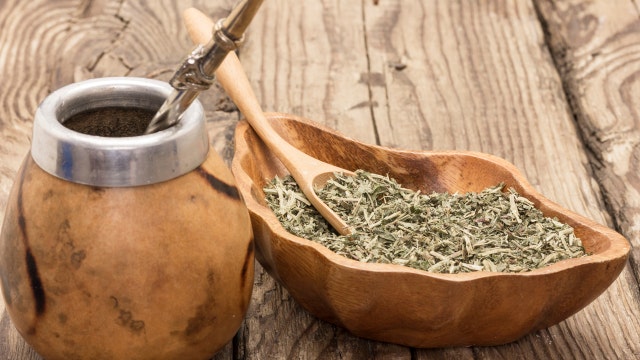Herbal tea that decreases body fat
Yerba mate is a popular tea in Brazil, Paraguay and Argentina and helps to revive your brain and fight chronic fatigue. However it can also be used to decrease body fat. Dr. Manny talks with the Medicine Hunter, Chris Kilham about its benefits
Yerba mate is one of several Amazonian caffeine-containing plants used to create stimulating beverages, like mate tea. Widely consumed in South America, the extract derives from the dried leaves of a tree cultivated in Paraguay, Brazil and northern Argentina. For centuries, yerba mate has been consumed as a traditional tonic and naturally caffeinated beverages. Drinks infused with yerba mate are enjoyed hot and cold, and people use them to help alleviate fatigue, suppress appetite, stimulate the body and mind, and boost metabolism.
A small Korean study suggests a beverage popular in South America may also help obese people lose weight. The research, published in September 2015 in BMC Complementary and Alternative Medicine, found that an extract from the plant yerba mate helped promote fat reduction in 30 South Korean study participants with a body mass index (BMI) over 35. A BMI of 30 or more is considered obese.
Researchers at the Clinical Trial Center for Functional Foods (CTCF2) of Chonbuk National University Hospital in Jeonju, Republic of Korea conducted the study, which was randomized and controlled, adhering to the highest standard of medical research. To control dosages, they gave participants a capsule of concentrated yerba mate extract three times daily, equivalent to one gram of extract daily. A placebo group took capsules of useless material. Over the course of 12 weeks, those who consumed the yerba mate saw their BMIs fall to an average of 30. Participants didn’t modify their diets or lifestyles throughout the experiment.
Study authors’ findings support previous animal and clinical trials that have also hinted at a weight loss benefit of yerba mate. The plant’s natural properties also suggest that, consumed in tea form, yerba mate can help reduce obesity.
This way, the plant can hydrate, provide fluid for detoxification, and assist in a moderate diuretic effect, which contributes to modest water weight reduction. Two or three cups of yerba mate daily can help you reap benefits similar to those seen in the study of extract capsules.
Yerba mate leaves naturally contain about .56 percent caffeine, which promotes thermogenesis, a process that expedites calorie burn. But perhaps more significant is the theobromine in yerba mate. Like caffeine, theobromine is a central nervous system stimulant alkaloid, but it is appreciably weaker than caffeine. Theobromine is diuretic, and may also be at least partially responsible for an appetite-suppressing effect of the herb.
Another group of compounds in yerba that contribute to healthier body weight are the chlorogenic acids. These compounds are well studied for their capacity to inhibit fat gain, control blood glucose, enable the body to burn more fat calories, and offer potent antioxidant protection. Chlorogenic acids can help regulate glucose metabolism, and contribute to healthier weight and body fat percentage.
To reduce obesity, the aforementioned factors of glucose control, thermogenesis, appetite suppression and increased diuresis can enhance your ability to reduce weight and keep it off. Yerba mate performs these functions, thereby improving the odds of achieving weight goals. Drinking yerba mate also can help to stabilize blood sugar, suppress appetite, increase caloric burn rate, and reduce overall body water weight.
Due to its popularity in the U.S. market, yerba mate is easy to consume as a tea in various flavors and types, from plain to chai spiced. Yerba mate ready-to-drink beverages can also be found in natural food stores and Whole Foods.









































